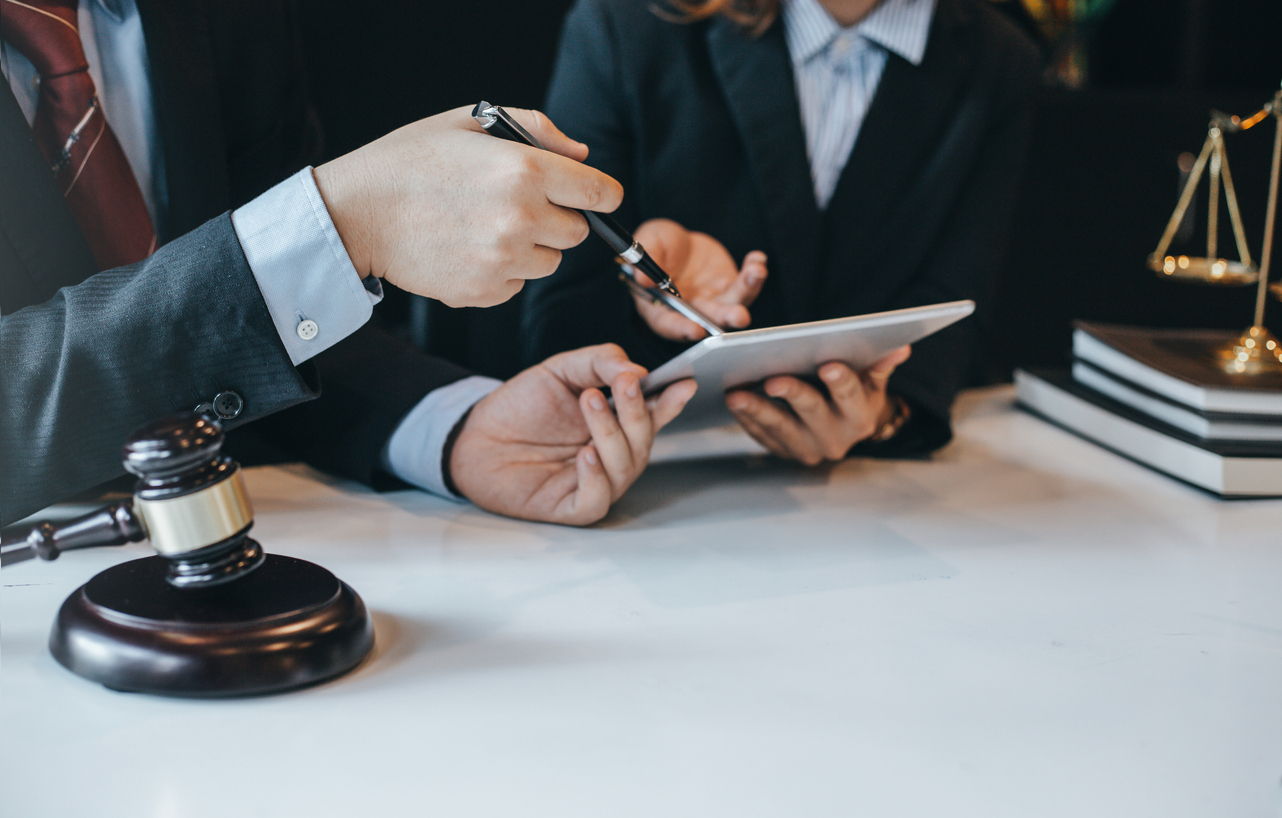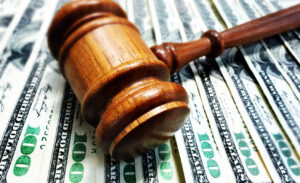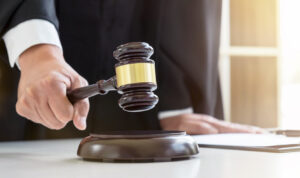Roman Austin | November 7, 2025 | Personal Injury

A trip to downtown Clearwater should be a simple part of your day. Whether you are heading to the Capitol Theatre, visiting a waterfront restaurant, or commuting to work, you expect the parking garage to be a safe, transitional space.
A sudden injury shatters that expectation, leaving you in pain and facing unexpected medical bills. You may wonder how a routine moment could go so wrong in a place designed for public use. Parking garage accidents in downtown Clearwater are a nightmare.
Navigating the concrete maze
When an injury occurs in a parking garage, grasping your position is the first step toward recovery. These foundational points clarify the complex situation you may be facing.
- Property owners and management companies have a legal responsibility to maintain a reasonably safe environment for visitors. This includes addressing hazards like poor lighting, spills, or inadequate security.
- Your injury is not just an accident; it may be the direct result of negligence. Proving this negligence forms the core of a personal injury claim.
- Evidence from the scene is incredibly powerful. Photographs, incident reports, and contact information for witnesses can significantly strengthen your ability to demonstrate what happened.
- The full cost of your injury includes much more than your initial emergency room visit. It encompasses future medical care, lost wages from time off work, and the physical and emotional pain you endure.
The Unseen Hazards in Clearwater’s Parking Structures
Parking garages are complex environments with unique risks. The combination of moving vehicles, pedestrians, and structural elements creates numerous opportunities for negligence to cause serious harm. Property owners have a duty to anticipate and manage these risks.

Collisions involving pedestrians and vehicles
The tight corners, low visibility, and shared spaces in parking garages make them hotspots for accidents. Distracted or speeding drivers who fail to yield can cause devastating injuries to pedestrians.
Poorly designed traffic flow, faded lane markings, or a lack of proper signage can contribute to these dangerous situations. The property owner may share responsibility if negligent design or maintenance contributed to the collision.
Slips, trips, and falls on dangerous surfaces
A simple fall can lead to broken bones, traumatic brain injuries, and spinal damage. In a parking garage, these incidents are often preventable and point directly to a lack of proper maintenance.
Many different maintenance failures can lead to a dangerous fall. A property owner’s failure to address these issues promptly may constitute negligence.
- Failing to clean up oil, coolant, or other fluid leaks from vehicles.
- Allowing rainwater to pool in walkways due to poor drainage.
- Leaving cracked pavement, potholes, or uneven concrete unrepaired.
- Failing to remove debris or trash from pedestrian paths.
These hazards are not just minor inconveniences; they are serious safety failures. A property owner who knew or should have known about such a condition and failed to fix it may be held accountable for the injuries it causes.
Assaults and injuries from inadequate security
Parking garages can attract criminal activity if they are not properly secured. Property owners in areas known for crime may have a legal duty to provide adequate security measures to protect their patrons.
An owner’s negligence may be a contributing factor when they fail in this duty and someone is assaulted or robbed. Negligent security can include poorly lit stairwells, a lack of surveillance cameras, broken security gates, or the absence of security patrols.
Structural flaws and falling debris
Older parking structures, or those built with substandard materials, can pose a risk of structural failure. Crumbling concrete from ceilings or walls can fall onto vehicles and people below.
Improperly secured pipes, signs, or electrical conduits can also break loose and cause serious harm. These incidents often point to a profound failure in inspection and maintenance protocols on the part of the owner or management company.
Establishing Responsibility for a Parking Garage Injury
When you are hurt on someone else’s property, the legal concept of premises liability determines who is responsible. This area of law holds property owners accountable for injuries that unsafe conditions cause. A successful claim requires proof of several key elements, and working with an experienced premises liability lawyer can help you understand your rights and build a strong case.
The property owner’s duty of care
In Florida, anyone who owns or controls a property has a legal obligation, or “duty of care,” which requires them to keep it in a reasonably safe condition for visitors. They must regularly inspect the property for hidden dangers, repair any known hazards, and warn people of risks that cannot be fixed immediately.
This duty applies directly to the owners and operators of public parking garages in Clearwater.
Identifying all potentially liable parties
Determining who is legally responsible can be more complex than it seems. The liable party might not just be the name on the building. It could be:
- The property owner: The individual or corporation that owns the land and structure.
- A management company: A separate company the owner hired to handle daily operations, maintenance, and safety.
- A third-party contractor: A security company, cleaning service, or maintenance crew whose negligence contributed to the unsafe condition.
An experienced legal team investigates property records, service contracts, and corporate structures and identifies all parties who may share responsibility for your injuries.
Proving Negligence Was the Direct Cause
Your legal team must show the property owner’s negligence directly caused your injury. This involves demonstrating four key points:
- A duty of care existed (the owner was responsible for safety).
- The owner breached that duty (they failed to fix a known hazard).
- This breach directly caused your accident and injuries.
- You suffered actual damages (medical bills, lost income, pain) as a result.
Gathering evidence that supports each of these points is the central task in building a compelling premises liability case.
Key Actions to Protect Your Claim
After an injury in a parking garage, the steps you take can significantly impact your ability to fight for fair compensation. Your first priority is always your health, but documenting the incident is also fundamental.
Seek immediate and consistent medical care
Your health is paramount. Get a full medical evaluation as soon as possible after the accident, even if your injuries seem minor. Some serious conditions, like brain injuries or internal damage, may not show immediate symptoms, and speaking with an experienced brain injury lawyer can help protect your rights if those injuries later worsen.
Following your doctor’s treatment plan creates an official medical record that connects your injuries directly to the incident.
Document everything you can remember and see
Evidence can disappear quickly. If possible, use your phone to take pictures of the exact location where you were injured. Capture photos of the hazard that caused your injury: the puddle of oil, the broken piece of concrete, the poorly lit stairwell. Make a note of any cameras you see in the area.
Write down everything you remember about the accident as soon as you can, while the details are still fresh in your mind.
Report the incident to management and get it in writing
Notify the parking garage management or security about the accident immediately. Insist on filing an official incident report and ask for a copy for your records. This action creates a formal record that the event occurred and that the management was aware of it.
Stick to the facts of what happened; do not speculate on fault or accept any blame.
How Florida Law Influences Your Injury Claim
Florida has specific laws that shape how the legal system handles personal injury claims, including those for parking garage accidents. A firm grasp of these rules is essential for protecting your rights.
Florida’s comparative negligence standard
The defense may try to argue that you were partially to blame for your own accident. Under Florida Statutes § 768.81, you can still pursue compensation even if you are found to be partially at fault.
A court may reduce any financial award you receive by your percentage of fault. An attorney uses evidence to counter these arguments and minimize any blame shifted onto you.
The statute of limitations for personal injury
Florida law sets a time limit, known as the statute of limitations, for filing a personal injury lawsuit. You generally have four years from the date of the accident to file.
Missing this deadline may mean you lose your right to seek compensation forever. Contacting a legal professional promptly can preserve your options.
“Open and Obvious” Doctrine
Property owners may defend themselves by claiming the hazard that caused your injury was “open and obvious.” They might argue that any reasonable person would have seen the danger and avoided it.
This defense is not absolute. An attorney can argue that even if a hazard was visible, the owner should have anticipated that a visitor might be distracted and still encounter it.
Compensation
A successful premises liability claim allows you to fight for compensation for the full range of losses you have suffered. The legal system categorizes these damages into two main types.

Economic damages
These are the tangible, calculable costs associated with your injury. The objective is to recover your financial losses and provide for your future needs. This includes:
- All past and future medical expenses.
- Lost wages and income from time away from work.
- Diminished future earning capacity if you cannot return to your previous job.
- Costs for physical therapy and rehabilitation.
Non-economic damages
These damages compensate you for the profound, non-financial ways the injury has affected your life. Though harder to quantify, they are just as real. They may include compensation for your physical pain, emotional distress, mental anguish, and loss of enjoyment of life.
The Limits of AI for Complex Legal Issues
Seeking answers online after an injury may lead you to an AI chatbot. While these tools offer general information, they are not a replacement for professional legal guidance.
AI programs provide textbook definitions, but they cannot apply Florida’s nuanced premises liability laws to the unique facts of your accident in a Clearwater parking garage. They do not know local court procedures or how to value your specific losses.
Relying on an algorithm for legal strategy could cause serious missteps. You need to consult with a qualified human attorney for advice connected to your specific situation.
Frequently Asked Questions About Clearwater Parking Garage Accidents
What if I slipped on a temporary spill like a soda? Is the owner still responsible?
The owner may be responsible if they knew about the spill and failed to clean it up in a reasonable amount of time. Liability can also exist if they should have known about it through regular inspections but failed to conduct them.
The owner has a sign warning people to be careful. Does that protect them from a lawsuit?
A general warning sign does not automatically absolve a property owner of liability. If the owner’s negligence in maintaining the property caused your injury, a sign may not be an effective defense.
How much does it cost to hire an attorney for my case?
Most personal injury attorneys work on a contingency fee basis, so you do not pay any upfront fees. The attorney’s fee is a percentage of the financial compensation they successfully recover for you. You owe no attorney fees if there is no recovery.
The insurance company for the property owner has already called me. What should I do?
You should not provide a recorded statement, sign any documents, or accept any personal injury settlement offer without first speaking to an attorney. The insurance adjuster’s objective is to minimize the amount the company must pay. An attorney can handle all communications for you to protect your rights.
Take the First Step Toward Recovery
You do not have to carry the burden of a parking garage injury alone. An experienced personal injury attorney can investigate your accident, stand up to property owners and their insurance companies, and fight for the fair compensation you need to heal and move forward.

The team at Roman Austin Personal Injury Lawyers is here to help.
Contact us today for a free, no-obligation consultation to discuss your case. We are ready to listen to your story and explain your legal options.
Let our experience guide you through this difficult time, so you can focus on what matters most: your recovery.
Contact us today for a free, no-obligation consultation to discuss your case. We are ready to listen to your story and explain your legal options.
Call us at (727) 787-2500 or complete our online contact form. Let our experience help you through this difficult time, so you can focus on what matters most: your recovery.
Roman Austin Car Accident and Personal Injury Lawyers – Clearwater Office
1811 N. Belcher Road, Suite I-1
Clearwater, FL 33765
(727) 787-2500


